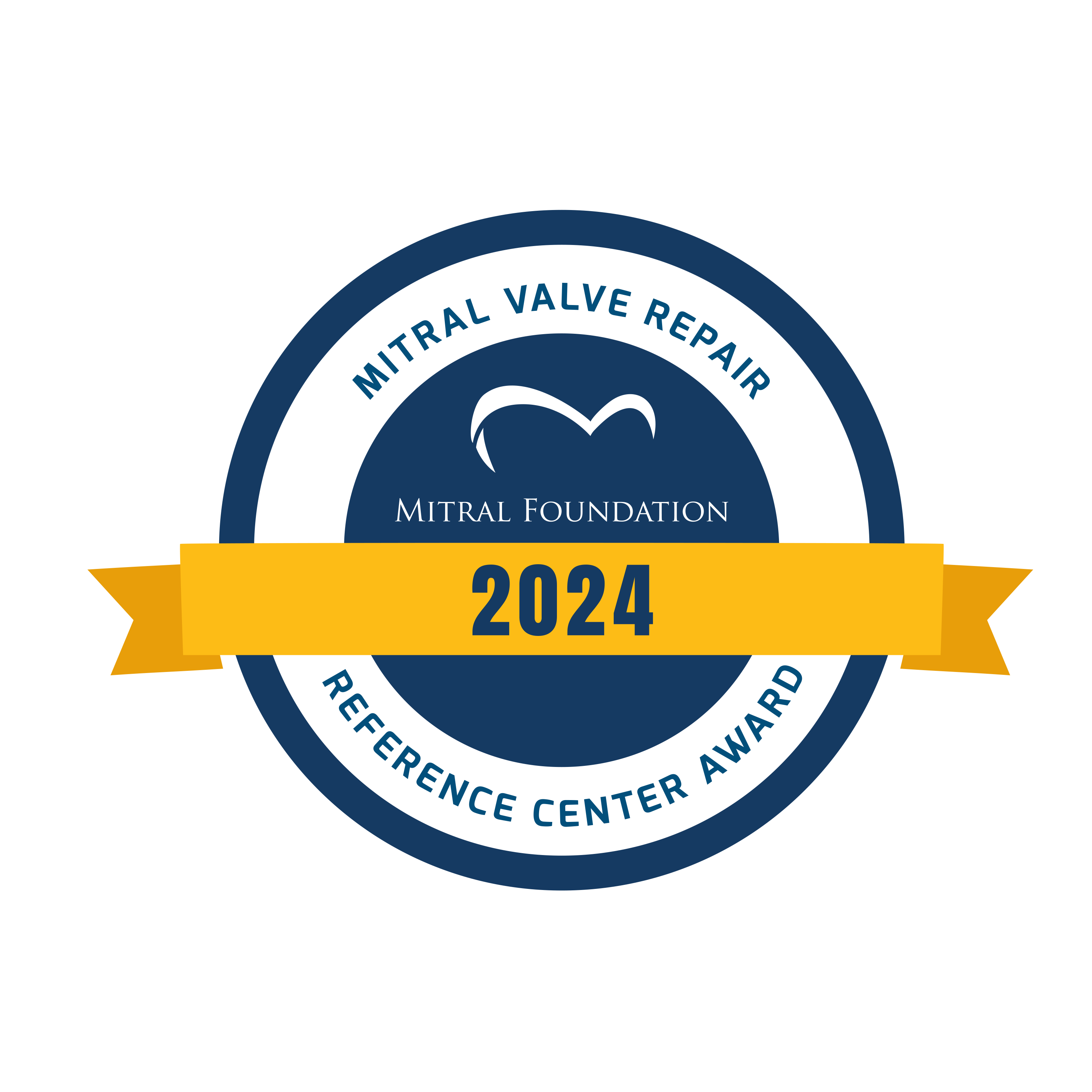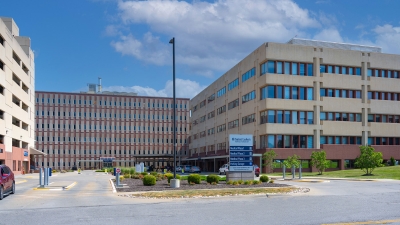Mitral Valve Disease
Mitral valve disease is a complex condition. The majority of patients with mitral valve disease have mitral regurgitation (leaky valve). Some have mitral valve prolapse, which causes their leaky valve. If the patient is healthy enough, open heart surgery is the standard to repair these valves.
At Saint Luke's, we have a high-volume surgical program that ranks in the top 5% in the country for volume.
Saint Luke’s Mid America Heart Institute's valve surgical program has been recognized by the Mitral Foundation for its commitment to this life-enhancing procedure. The Mitral Valve Repair Reference Center Award assures patients that our experienced surgical team strive for superior clinical outcomes guided by data-driven oversight from a highly respected health organization. The Institute is the first and only organization in the region to receive this recognition.
However, not every patient is a candidate for surgical intervention. Continuing our commitment to innovation, we began a transcatheter program to repair leaky valves in 2015. We perform mitral transcatheter edge-to-edge repair (M-Teer) to repair leaky mitral valves caused by heart failure.
The other mitral valve condition is stenosis (narrowing), which may also be addressed with surgery or catheterization.
Saint Luke’s Valve Team specializes in treating complicated mitral valve disease either through repair or replacement of the valve. Your treatment plan will vary based on the way your valve functions.
- Surgical mitral valve repair or replacement can be performed through an incision in the sternum (breastbone) or though the side of the chest.
- Transcatheter mitral valve repair can be performed by accessing the femoral vein in the leg.
- Transcatheter mitral valve replacement can be performed by accessing the femoral vein in the leg or through a small incision in the side of the chest.
- Saint Luke's valve experts continue to participate in numerous clinical trials focused on transcatheter mitral valve repair and replacement.
A cardiologist and surgeon will discuss these options and determine which is right for the patient.
Not all patients with mitral valve disease need an intervention. Once an accurate diagnosis is established by echo or TEE, many patients can be followed in our dedicated valve clinic.
For a consultation call 816-931-1883.

Locations

Saint Luke’s Hospital Vascular & Vein Center
Recent News
Article